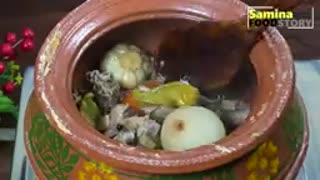Premium Only Content

Food Handler Training Course_ Part 2
### **Food Handler Training Course (Part 2) – Personal Hygiene and Health**
Maintaining personal hygiene and good health is essential for food handlers to prevent contamination and ensure food safety. Poor hygiene practices can introduce harmful bacteria, viruses, and allergens into food, leading to serious consequences for consumers.
---
### **Objectives of Part 2**
1. Understand the importance of personal hygiene in food safety.
2. Learn proper hygiene practices for food handlers.
3. Recognize when to stay away from food preparation due to illness.
---
### **Why Personal Hygiene is Critical**
1. **Prevents Contamination:**
- Hands, hair, skin, and clothing can carry harmful microorganisms that contaminate food.
2. **Protects Consumers:**
- Maintaining cleanliness helps reduce the risk of foodborne illnesses.
3. **Legal Compliance:**
- Many local food safety regulations require strict adherence to personal hygiene standards.
---
### **Key Personal Hygiene Practices**
#### **1. Hand Hygiene**
Proper handwashing is the most critical step in preventing the spread of germs. Follow these steps:
1. **Wet hands** with warm running water.
2. **Apply soap** and lather for at least **20 seconds**, scrubbing all parts of the hands, including nails and between fingers.
3. **Rinse thoroughly** under running water.
4. **Dry hands** with a disposable towel or air dryer.
**When to Wash Hands:**
- Before starting work or handling food.
- After using the restroom.
- After handling raw meat, poultry, seafood, or eggs.
- After touching your face, sneezing, or coughing.
- After cleaning, handling trash, or using chemicals.
#### **2. Wear Clean Clothing**
- Always wear clean and suitable work clothing, including aprons or uniforms.
- Avoid wearing jewelry (especially rings and bracelets) as they can trap bacteria or fall into food.
#### **3. Hair Restraint**
- Keep hair tied back and wear a hairnet, cap, or other restraint to prevent hair from falling into food.
#### **4. Fingernails**
- Keep nails short, clean, and free from nail polish or artificial nails, as these can harbor bacteria.
#### **5. Avoid Touching the Face**
- Avoid touching your nose, mouth, or hair while handling food to prevent contamination.
#### **6. Use Gloves Properly**
- Wear gloves when handling ready-to-eat foods, but remember they are not a substitute for handwashing.
- Change gloves when they become dirty, torn, or after handling raw food.
---
### **Health and Illness in Food Handling**
#### **1. When Not to Handle Food**
Food handlers should avoid working with food if they are experiencing:
- Diarrhea or vomiting.
- Fever, sore throat, or coughing.
- Open wounds or skin infections on hands or arms.
- Symptoms of contagious illnesses such as Norovirus, Hepatitis A, or Salmonella.
#### **2. Reporting Illness**
- Notify a supervisor immediately if you are unwell or suspect you may have a foodborne illness.
- Follow local health department guidelines regarding when you can return to work.
#### **3. Cover Cuts and Wounds**
- Use waterproof bandages to cover cuts or wounds.
- Wear gloves over bandaged hands to prevent contamination.
---
### **Hygiene Checklist for Food Handlers**
- Wash hands frequently and correctly.
- Wear clean, appropriate clothing and hair restraints.
- Avoid working while sick or injured.
- Maintain good habits, such as not eating, drinking, or smoking in food preparation areas.
- Cover all cuts, wounds, and sores properly.
---
### **Common Mistakes to Avoid**
1. **Not Washing Hands Regularly:**
- Failing to wash hands at the right times is one of the leading causes of foodborne illness outbreaks.
2. **Improper Use of Gloves:**
- Reusing gloves or not changing them between tasks can spread contamination.
3. **Working While Sick:**
- Ignoring symptoms of illness and continuing to work can endanger consumers.
4. **Touching Food with Bare Hands:**
- Avoid bare-hand contact with ready-to-eat foods to minimize contamination risks.
---
### **Tips for Success**
- Establish a clear hygiene policy for all food handlers.
- Provide ongoing training and visual reminders about hygiene practices.
- Conduct regular checks to ensure compliance with personal hygiene standards.
---
### **Conclusion**
Good personal hygiene is the first step in ensuring food safety. By maintaining cleanliness and staying alert to health conditions, food handlers can protect consumers and uphold the highest food safety standards.
---
Would you like to move on to **Part 3: Preventing Cross-Contamination**, or is there a specific topic you'd like more information on?
-
 7:58
7:58
HSESafetyInformation
8 months agoAuthentic Peshawari Rosh _ Namkeen Gosht Recipe __ Traditional KPK and Baluchistan
741 -
 8:01
8:01
MattMorseTV
11 hours ago $0.14 earnedTrump just GUTTED the ENTIRE SYSTEM.
60.2K80 -
 20:02
20:02
Nikko Ortiz
12 hours agoBlades And Sorcery Is The Ultimate Medieval Fantasy
8.27K6 -
 2:12:18
2:12:18
Side Scrollers Podcast
20 hours agoSide Scrollers VTuber TAKE OVER with Kirsche, Rev Says Desu & DarlingStrawb | Side Scrollers
90.9K15 -
 29:15
29:15
BlabberingCollector
1 day agoHarry Potter X Fortnite, Fans Reee Over Trans Rights, NEW Audiobooks Are OUT, Wizarding Quick Hits
7.8K1 -
 1:20:42
1:20:42
The Connect: With Johnny Mitchell
5 days ago $0.29 earnedThe Truth Behind The U.S. Invasion Of Venezuela: Ed Calderon Exposes American Regime Change Secrets
12K6 -
 LIVE
LIVE
Lofi Girl
3 years agolofi hip hop radio 📚 - beats to relax/study to
223 watching -
 21:39
21:39
TruthStream with Joe and Scott
2 days agoJoe, Scott and Lewis, Censorship and the Nov 8th event in Carlsbad California!
12.1K2 -
 22:47
22:47
The Pascal Show
1 day ago $0.24 earnedTHEY’RE HIDING EVIDENCE?! Candace Owens EXPOSES Foreign Connection In Charlie Kirk Shooting
38.1K42 -
 7:44:50
7:44:50
SpartakusLIVE
11 hours agoThe Duke of Nuke CONQUERS Arc Raiders
174K5